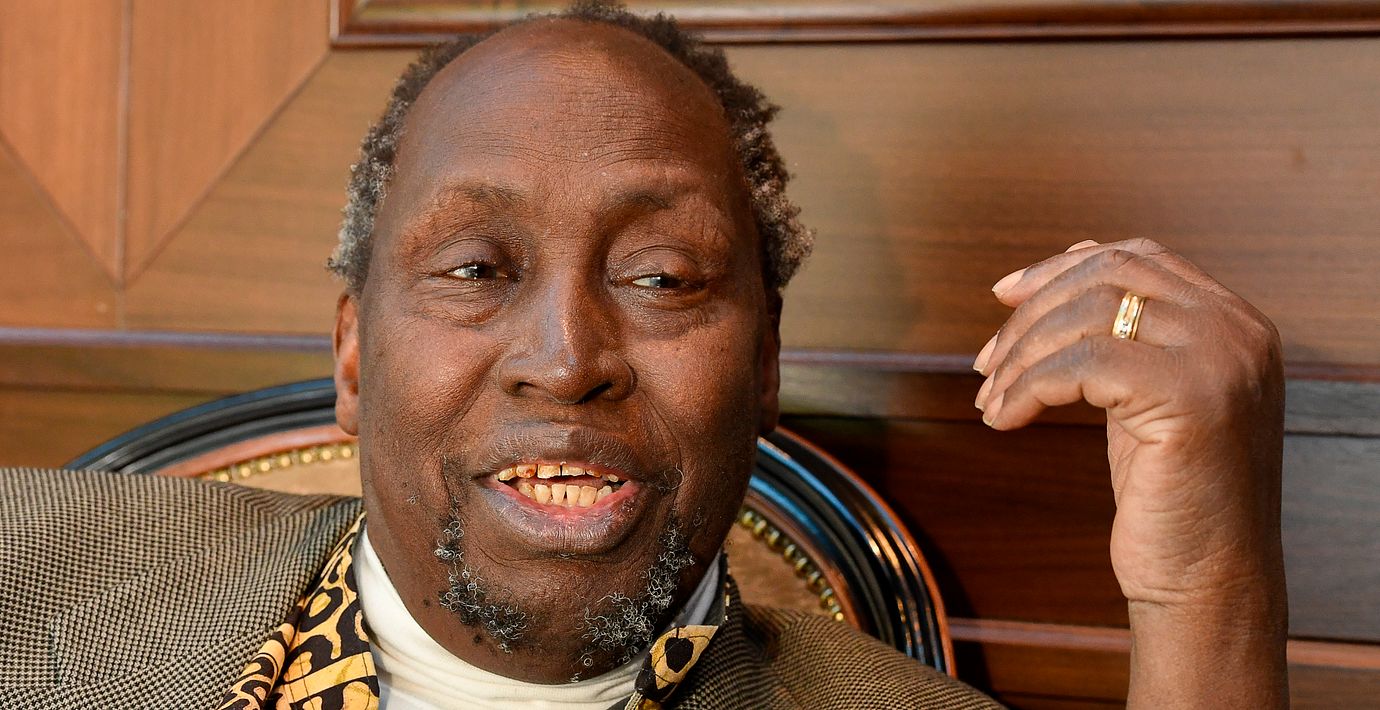
Kenyansk författare död – tippades få Nobelpris
Den hyllade kenyanske författaren Ngugi wa Thiong’o har dött vid 87 års ålder, enligt den kenyanska tidningen The Star.
Hans familj skriver i ett uttalande att han ”levde ett rikt liv och kämpade för det goda”.
Ngugi wa Thiong’o nämndes i decennier som en möjlig Nobelpristagare i litteratur, enligt TT. Han föddes som James Ngugi 1937 i ett Kenya präglat av brittisk kolonialism.
Han studerade på universitet i Ugandas huvudstad Kampala och brittiska Leeds, där han skrev debutromanen ”Upp genom mörkret”.
På 70-talet, inspirerad av Karl Marx och Frantz Fanon, tog han tillbaka sitt kikuyunamn Ngugi wa Thiong’o. 1977 kom hans kanske mest kända roman ”En blomma av blod”.
bakgrund
Ngugi wa Thiong'o
Wikipedia (en)
Ngũgĩ wa Thiong'o (Gikuyu pronunciation: [ᵑɡoɣe wá ðiɔŋɔ]; born James Ngugi; 5 January 1938 – 28 May 2025) was a Kenyan author and academic, who was described as "East Africa's leading novelist".
He began writing in English, later switching to write primarily in Gikuyu. His works include the celebrated novel The River Between, plays, short stories, and essays, ranging from literary and social criticism to children's literature. He was the founder and editor of the Gikuyu-language journal Mũtĩiri. His short story The Upright Revolution: Or Why Humans Walk Upright was translated into over 100 languages.
In 1977, Ngũgĩ embarked upon a novel form of theatre in Kenya that sought to liberate the theatrical process from what he held to be "the general bourgeois education system", by encouraging spontaneity and audience participation in the performances. His project sought to "demystify" the theatrical process, and to avoid the "process of alienation [that] produces a gallery of active stars and an undifferentiated mass of grateful admirers" which, according to Ngũgĩ, encourages passivity in "ordinary people". Although his landmark play Ngaahika Ndeenda, co-written with Ngũgĩ wa Mirii, was a commercial success, it was shut down by the authoritarian Kenyan regime six weeks after its opening.
Ngũgĩ was subsequently imprisoned for over a year. Adopted as an Amnesty International prisoner of conscience, the artist was released from prison, and fled Kenya. He was appointed Distinguished Professor of Comparative Literature and English at the University of California, Irvine. He previously taught at Northwestern University, Yale University, and New York University. Ngũgĩ has frequently been regarded as a likely candidate for the Nobel Prize in Literature. He won the 2001 International Nonino Prize in Italy, and the 2016 Park Kyong-ni Prize. Among his children are authors Mũkoma wa Ngũgĩ and Wanjiku wa Ngũgĩ.
Omni är politiskt obundna och oberoende. Vi strävar efter att ge fler perspektiv på nyheterna. Har du frågor eller synpunkter kring vår rapportering? Kontakta redaktionen